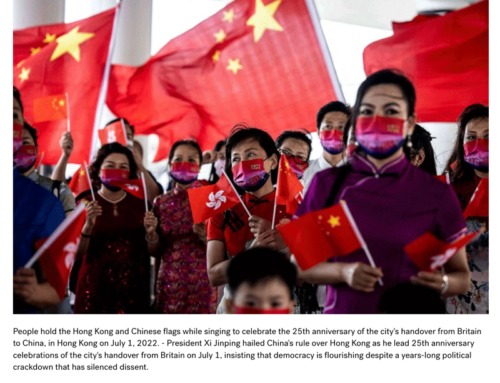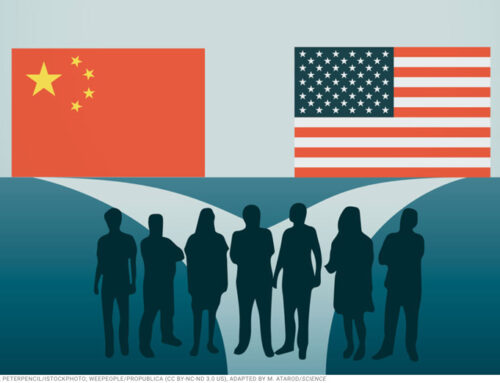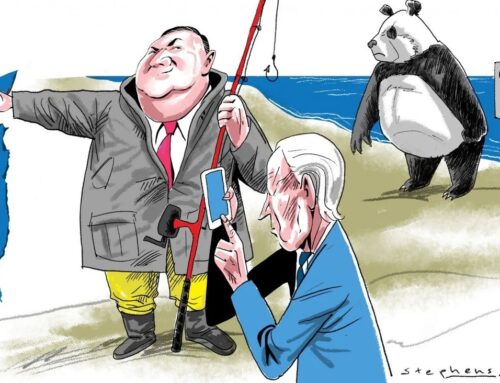There’s really only one issue on which Joe Biden need campaign for president. Donald Trump’s Administration had the time and the information to act decisively, but he failed to stop the virus from devastating America.
Trump waxes eloquently daily how everyone but him is to blame, repeating that America has suffered because China did not let his administration know earlier. But China, while guilty of delays, let the world know in early January that trouble was brewing in Wuhan. Could they have done better? Unequivocally, yes. But a US president, whose priority was American lives and not reelection, could have avoided the death of so many Americans and, ironically for Trump, avoid the emasculation of the American economy.
Local governments in China always hide bad news from Beijing. In the face of crises, their instinct is: deny, deny and deny! Particularly if errors trigger popular unrest, their careers will be over, as maintaining social stability is the sine qua non of a successful career in China. Thus, Wuhan’s mayor admitted on January 27th that his government had not released information about the virus in a “timely” manner. But, since coronavirus is a “contagious disease,” he could not go public about it without authorization from Beijing, and until that point, his primary task was to keep the word of the virus under wraps, and avoid social instability at all costs, even by having the local Public Security Bureaus threaten doctors who shared that information on line. Similarly, with SARS in 2003, Guangdong provincial officials hid information about that “contagious” disease for four months, allegedly because they had no authority to make any public disclosure. As a result, half the people SARS killed worldwide were in Hong Kong.
Still, word of the pending pandemic worked its way out of Wuhan. On December 31st, the Wuhan Municipal Health Commission informed the World Health Organization. That same day, Chinese national television reported on a strange pneumonia in Wuhan and on January 8th, interviewed a Chinese doctor who pronounced it a new coronavirus. On 10th January, China’s CDC posted the genome sequencing online, giving a copy to the WHO the following day. Still, as of 14 January, local officials could not (or would not) confirm that there was human to human transfer. But in less than a week, China’s Health Commission’s research team sent to Wuhan confirmed that there was human-to-human transfer. Moreover, on January 21st, the Communist Party’s Central Political and Legal Commission, the ultimate authority for maintaining social order, warned online that anyone who concealed new cases would “be nailed on the pillar of shame for eternity.” Two days later, Wuhan and all of Hubei Province were shut down and on 24 January, Chinese researchers, under supervision of the Chinese CDC, shared what they knew about the virus in a report in the prestigious British medical journal, Lancet. Given China’s tendency to secrecy and administrative lethargy, the speed was not too bad.
And what happened in the US? On January 1st, Robert Redfield, head of America’s CDC, was told of the virus by the head of China’s CDC, and two days later, Secretary of Health and Human Services (HSS), Azar, informed the US National Security Council. We now know through the Washington Post that word of the virus was included in President Trump’s daily briefing from early January. On 15 January, the US embassy in China issued a health alert for Wuhan. On January 18th, Azar, in a phone conversation, failed to get Mr. Trump to focus on the virus; the president was more worried about the vaping crisis which had catapulted onto the television news.
At the end of January, Assistant to the President Peter Navarro warned in a memo that “The lack of immune protection or an existing cure or vaccine would leave Americans defenceless in the case of a full-blown coronavirus outbreak on U.S. soil.” Furthermore, “This lack of protection elevates the risk of the coronavirus evolving into a full-blown pandemic, imperilling the lives of millions of Americans.” President Trump says he did not read that report, but he must have known its contents, and if he didn’t, he must be judged on running a White House where his closest advisors fear giving him bad news.
Still, what did he do between the Navarro report and March 16th, when he locked down America? He behaved like a local Chinese official and denied, denied and denied, believing that highlighting the problem could trigger an economic panic that would imperil his political future. On February 14, he assured America that the virus would disappear by itself; on February 24, he had the virus “very much under control,” and on February 27, he predicted the virus would disappear “like a miracle.” The one point which he says demonstrates his wisdom, his decisiveness and his prescience, the decision on 29 January to shut down the flow of Chinese and European citizens to the US, still allowed 45,000 Americans citizens and green card holders to come back to China without putting them in quarantine after they arrived. And now we know that as of late January, while the official count of virus carriers was under a dozen, perhaps as many as 25,000 Americans were infected.
Yes, local Chinese officials suppressed information about the virus from leaders in Beijing and outdated national security regulations forbade them to publicize the threat to the nation. Leaders in Beijing dragged their feet, but local officials were still denying any human-to-human transfer on January 14th. Still, after its own investigation team found out on January 20th that the virus was contagious, the Chinese leadership shut down a province of 56 million people.
But other facts are also clear. The president was informed that a crisis was coming, but he didn’t act. Hopefully enough Americans will recognize that he failed in his responsibility to them, and that, for the good of the world, they replace him this fall as president of the United States.
David Zweig is Professor Emeritus, The Hong Kong University of Science and Technology and Director of Transnational China Consulting Limited.






You may wish to include in your article here (which is very good) the information given here – https://apnews.com/3c061794970661042b18d5aeaaed9fae
Miki